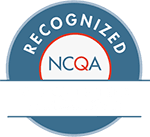 Here’s what top doctors near you say about the risks of heart diseases
Here’s what top doctors near you say about the risks of heart diseases
The importance of the heart in the human body cannot be overstated. It pumps and supplies oxygen-rich blood to the body, round the clock. If the heart becomes ill, the routine functions of the human body cease to exist. As per the estimates of the Centers for Disease Control and Prevention (CDC), heart disease is the cause of every 1 in 4 deaths in the US.
It is a silent killer that does not distinguish along the lines of race or gender and claims the lives of approximately 655,000 Americans each year. To better deal with heart issues, it is important to know the common causes and risk factors involved in heart disease. Let us take a look.
Common Causes of Heart Disease
- The heart suffers and gets damaged when the flow of blood to the heart is impeded and it does not receive sufficient blood. One of the common causes of this blockage of blood flow is the formation of plaque in coronary vessels. When the heart does not receive nutrients and oxygen due to blockage of blood, the cells of the heart start to die.
- This leads to multiple heart issues such as angina pectoris, arrhythmia, heart attack, and eventually heart failure. Deposition of plaque on the coronary arteries is a gradual process. Plaque is a wax-like substance that is formed of cholesterol, fat, and minerals.
- Plaque accumulation on the coronary arteries is accelerated by cigarette smoking, high blood pressure, and already increased levels of cholesterol. Now that we have understood the common causes of heart diseases, let us take a look at the risk factors which accelerate heart diseases.
Risk Factors for Heart Diseases
- Age and genetic disposition are two important factors that determine one’s susceptibility to heart diseases. Other than that, the following factors can increase a person’s risk of developing heart disease:
Unhealthy Lifestyle
The following unhealthy lifestyle choices increase a person’s risk of having heart disease:
- Lack of exercise and poor physical fitness
- Consumption of unhealthy food that has a higher content of trans fat. Sugary beverages and higher quantities of sodium are also contributing factors.
- Unchecked consumption of alcohol.
- Stress and tension.
- Unregulated diabetes.
Type 2 Diabetes Accelerates Heart Disease
- People who suffer from Type 2 diabetes are more susceptible to heart disease. The reason behind this correlation lies in the way high levels of glucose impact the health of blood vessels. High levels of blood glucose or insulin resistance increase the quantity of plaque deposition in the blood vessels.
- As plaque grows in the coronary vessels, the flow of blood to the heart decreases which leads to multiple heart ailments. If you have been diagnosed with Type 2 diabetes, manage your weight and your blood sugar to limit your chances of heart diseases.
Correlation Between Depression and Heart Disease
- Depression and a general feeling of sadness are accelerators for heart disease. Disturbed mental health can cause multiple unwanted changes in the body such as increased blood pressure. This negatively impacts the heart and disrupts its day-to-day functions.
- When a person suffers from depression, the body produces increased levels of C-reactive protein (CRP). CRP causes inflammation in the body which restricts the passage of blood in the coronary vessels.
- Depression has a negative impact on a person’s productivity. The energy levels go down and productive activities such as exercise are not carried out. This accelerates the buildup of plaque in coronary arteries and worsens the condition of the heart.
This information has been brought to you by Optima Medical. They offer Heart Risk Assessment services in several locations in Arizona.






